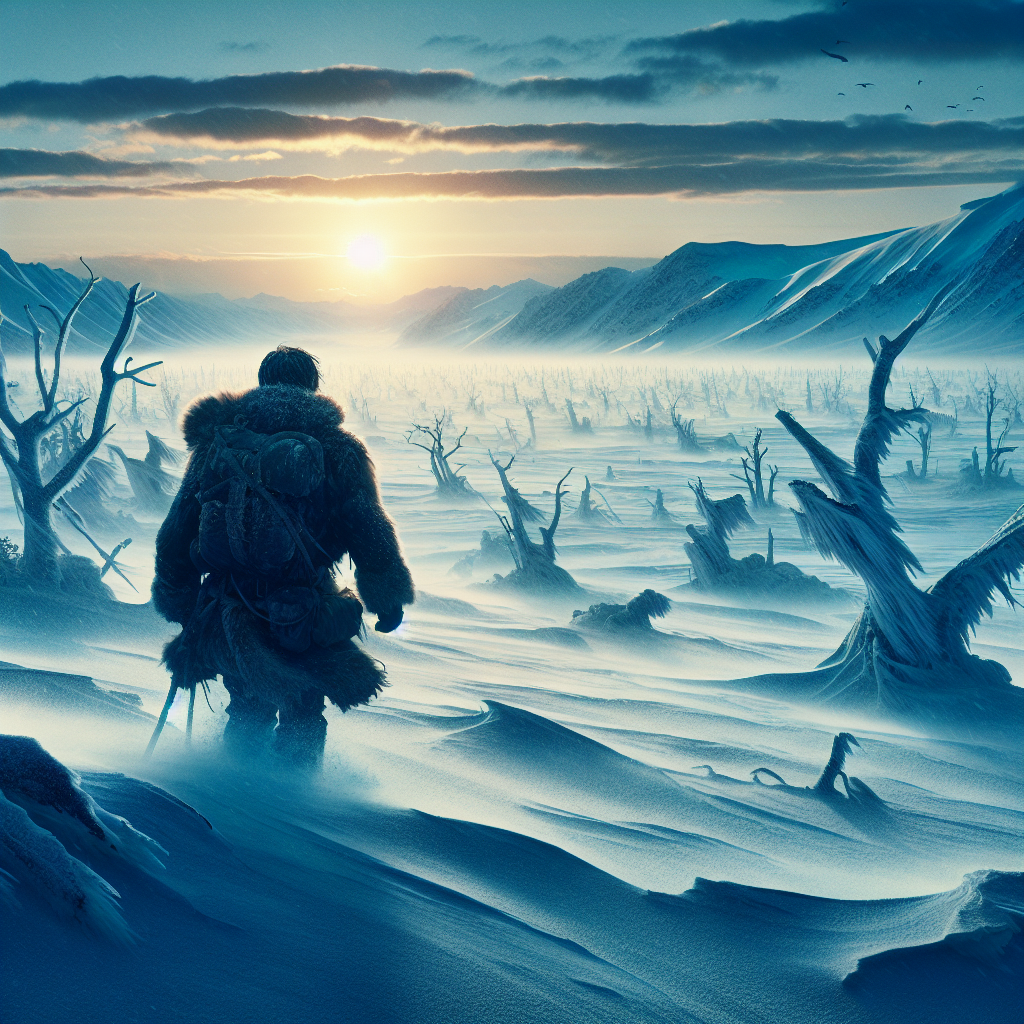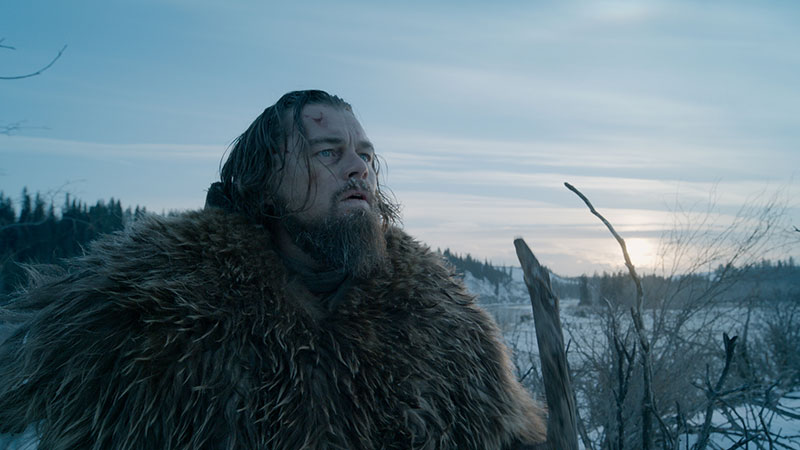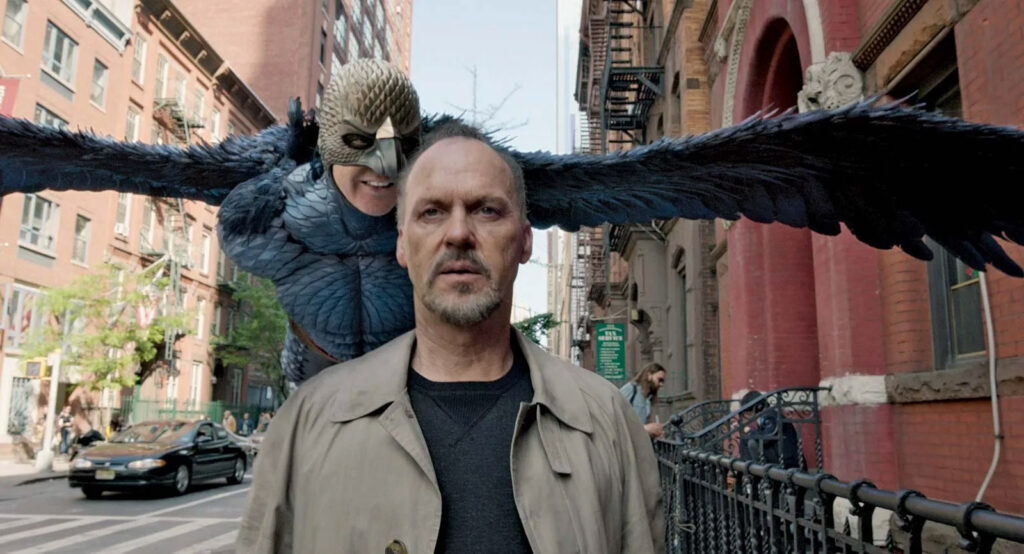Directed by Alejandro González Iñárritu, ‘The Revenant’ (2015) is a brutal and relentless portrayal of survival against unforgiving natural elements and human treachery. Filmed in the wild expanses of Canada and Argentina, the film grapples with the wilderness in its raw, unflinching form, adding an epic backdrop to the heart-wrenching narrative of survival, revenge, and resilience.
Leonardo DiCaprio plays Hugh Glass, a skilled fur trapper in the 1830s left for dead by his comrades after an intense bear attack. The onslaught is a grueling scene of primal ferocity. DiCaprio showcases an astounding feat of endurance and resilience, offering a performance marked by raw physicality and emotional gravitas. He portrays Glass’s vast range of emotions – from betrayal to grief to revenge – largely without dialogues, adding compelling depth to his character. His efforts earned him a well-deserved Academy Award for Best Actor.
Tom Hardy is equally mesmerizing as John Fitzgerald, a callous and pragmatic fur trapper, whose motivations for leaving Glass behind are driven by survival but coated with unmistakable malice. Hardy is impeccable, embodying an unkind and merciless character that’s easy to despise. His performance is chillingly authentic, further validating his prowess as an actor with a diverse range.
The unforgiving wilderness is almost a character in itself, influencing the narrative in unforeseeable ways. It’s breathtaking in its beauty, simultaneously terrifying in its indifference towards man. Cinematographer Emmanuel Lubezki, a regular collaborator with Iñárritu, offers stunning and sweeping visuals of the treacherous landscape, with natural lighting and long-take sequences that elevate the sensory experience to new heights.
One of the most admirable aspects of ‘The Revenant’ is its ability to blend the stark harshness of survivalist dramas with moments of poignant reflection. Iñárritu incorporates ethereal dream sequences that explore Glass’s past, providing deeper insight into his character while also raising complex questions about life, death, and the human spirit. These sequences soften the edge of the relentless brutality, providing respite and adding layers to the film’s narrative.
Alejandro González Iñárritu’s storytelling prowess shines in this film. He masterfully envelops audiences in the world of his characters, entwining the visceral and spiritual underpinnings of the story. With a running time of 156 minutes, the film does lag in places, but overall, manages to sustain an intense level of engagement owing to its captivating narrative and intricate character dynamics.
The sound design and score are noteworthy, with Ryuichi Sakamoto, Alva Noto, and Bryce Dessner’s haunting melodies enveloping the film in an air of melancholy and despair. The music ebbs and flows with the narrative, enhancing the movie’s emotional impact.
On the downside, the film’s brutality may not appeal to everyone. Moreover, some of the accurate details of Hugh Glass’s story have been overlooked for dramatic flair. However, these choices hardly distract from the immersive experience that ‘The Revenant’ serves to its audience.
In conclusion, ‘The Revenant’ is a cinematic masterpiece that offers a riveting exploration of human resilience against a backdrop of wilderness and treachery. The performances, particularly by DiCaprio and Hardy, are magnetic, while Iñárritu’s direction and Lubezki’s cinematography are nothing short of breathtaking. Although it could be less intense for some, those willing to venture into this unforgiving wilderness will be rewarded by a starkly beautiful and deeply emotional film that’s hard to forget. The savage yet haunting narrative of ‘The Revenant,’ grounded in potent performances and mesmerizing visuals, prescribes it as a must-watch for anyone seeking a cinema experience that surpasses storytelling and ventures into the profound exploration of the human condition.




